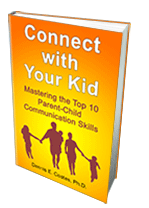I was in a hurry to get home, but so were many other people in rush hour traffic. I had to wait in line to turn right and then immediately I had to wait in a long line at a stoplight. When the light turned green, the car in front of me didn’t move. The driver was talking on his phone. The light turned red again. I felt my anger rising.
But then I quickly shifted to an alternate set of thoughts: Maybe the call was urgent. If I get home ten minutes late, it’s no big deal, as long as I’m safe. Everybody out here is dealing with their personal challenges. Live and let live. All true.
My anger disappeared.
That’s a good thing. Anger can lead to elevated levels of stress hormones such as cortisol, which can contribute to various health problems. Anger can elevate blood pressure, which can lead to heart disease or stroke. It can weaken the immune system. It can impair decision making and strain relationships. It can even lead to taking unnecessary risks, such as abrupt lane changes in traffic.
Twenty-five years ago, my family moved from Miami to Vero Beach, a small bit of paradise on the Florida Atlantic coast. We bought the home from an elderly couple that was moving into assisted living. It was strange to interact from them because both of them were seething with anger, probably about the changes in their life. When we brought a home inspector with us before the sale, after five minutes the husband told us to leave. “You’ve had enough time. I want you to leave.” When we told him we only needed a few more minutes, he called the police. Awkward!
His wife didn’t have much of a chance to get settled in her new residence. A month after the sale she died from a heart attack. A few months later, we heard that the husband met a similar fate. They were only in their sixties.
What does this have to do with raising kids? You know the answer. Kids can make you angry. They cause noise and disorder and well, chaos. They make managing a household many times more difficult than it needs to be, if they would just be more considerate! I remember feeling anger when my boys would get into fights. My hot emotional reactions caused me to say things and do things I now regret. Because my behavior wasn’t helpful. It had a negative impact on our relationship and their development, which I had to work to undo later.
I was a much younger man, then, and I lacked wisdom about parenting and communication. I’ve had a lot to learn. Most of my articles these days are about parent-child communication.
In this post I want to pass on a mental skill, the one I alluded to in my anecdote about rush-hour traffic. Emotions can be triggered by danger or frustrating situations. But usually there are thoughts in the background: Come on, you inconsiderate fool, you don’t talk on the phone while driving! I need to get home! Move it! Or at home with the kids: “Can’t you behave? You’re making a mess! Don’t you see I’m trying to make your dinner?”
So you feel anger rising, and maybe you say something or do something that makes the situation worse. Parenting is really hard sometimes.
The key is to recognize that thoughts trigger emotions like anger, then change the thought to something like: It’s natural for kids to run around with energy. They haven’t developed enough empathy to consider what I’m try to do. It’s no big deal. These thoughts aren’t lies. They’re about acknowledging reality and going with it. You consider these realities and anger subsides, giving you a calmer space to consider using one of the effective communication skills I’ve recommended in my writing, such as “My Favorite One-Two Skills Combo,” which combines asking open-ended questions, followed by listening.
Feel the emotion, change the thought. With practice, you can make this shift a habit that will make a difference in what you’re trying to achieve with your kids.


